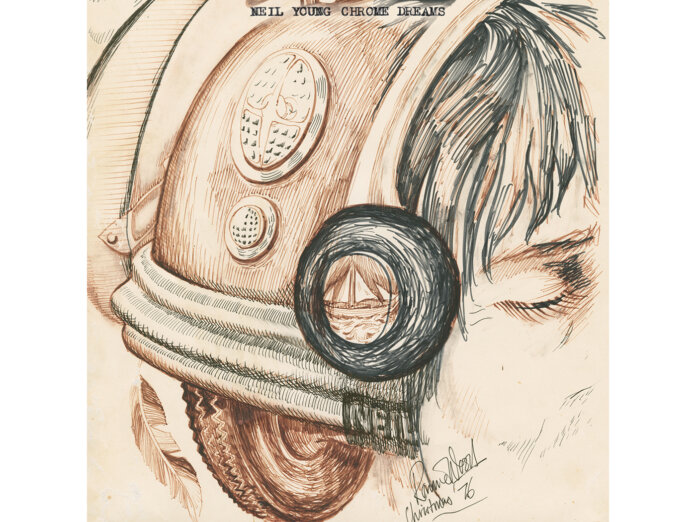Several years into his prolific archive project, Neil Young’s vault still hasn’t come anywhere near reaching the end. Chrome Dreams, the newest member of Young’s Special Release Series, is possibly the most fabled lost album in his shadow discography, looming so large in fan lore that Young ch...
Several years into his prolific archive project, Neil Young’s vault still hasn’t come anywhere near reaching the end. Chrome Dreams, the newest member of Young’s Special Release Series, is possibly the most fabled lost album in his shadow discography, looming so large in fan lore that Young cheekily released a sequel in 2007.
But “lost” overstates the obscurity of Chrome Dreams, which was originally slated for release in 1977. Bootlegs have sat behind store counters and shady URLs for decades, and Young himself stripped it for parts almost immediately, reassigning songs to American Stars & Bars and Decade, re-recording others for Rust Never Sleeps. In recent years, he delegated Chrome Dreams exclusives to other lost records that jumped the line; most notably with the solo versions of “Pocahontas” and “Powderfinger” that came out in 2017 on Hitchhiker.
That leaves only two performances – a woozy, stripped-down “Hold Back the Tears” and a live “Stringman” – as “new” tracks, turning Chrome Dreams into more of a deep cuts mixtape than long buried treasure. But it’s one that makes another spectacular case that Young’s ’70s run was unparalleled among his singer-songwriter peers. In an alternate timeline, Chrome Dreams anchors a second post-Ditch trilogy, filling in the missing pieces between the boozy, beachside recovery of Zuma and the rootsy revival of Comes A Time.
Like many of Young’s best LPs, Chrome Dreams captures both sides of Young’s sonic spectrum, from the fragile fire-crackle of “Will To Love” to the fuzz-stomp misanthropy of “Sedan Delivery”. It also finds his songwriting at a pivot, with remnants of his early ’70s depression (“Look Out For My Love”) and a return to Harvest’s sentimentality (“Too Far Gone”) joined by folk epics both surreal (“Pocahontas”) and narrative (“Powderfinger”, “Captain Kennedy”).
The album’s only fault is that it should have come out a lot earlier – not just in 1977, but in the timeline of Young’s archival releases. Where others of his generation have trusted outside experts with the rollout of their unreleased material, Young has handled it himself, bringing his famously eccentric hand to the wheel.
From the lovably bizarre user-unfriendliness of the NYA website to the perpetually delayed boxsets to the releases settling decades-long scores with bootleggers, Young’ s fickle fingerprints can be felt all over the project. While it’s a blessing that he’s so prolific in emptying his musical attic, the quality control can sometimes suffer, echoing a dynamic that has played out over his entire discography.
As a result, Chrome Dreams doesn’t get the spotlight it deserves. In isolation, it’s a dozen of Young’s best songs, powerful no matter how many times they’ve been reshuffled since. But in reality, it risks getting lost in the shotgun spray of Young’s self-curation.



